Three siblings starred in a film. Forty years later, they watched themselves on screen for the first time.
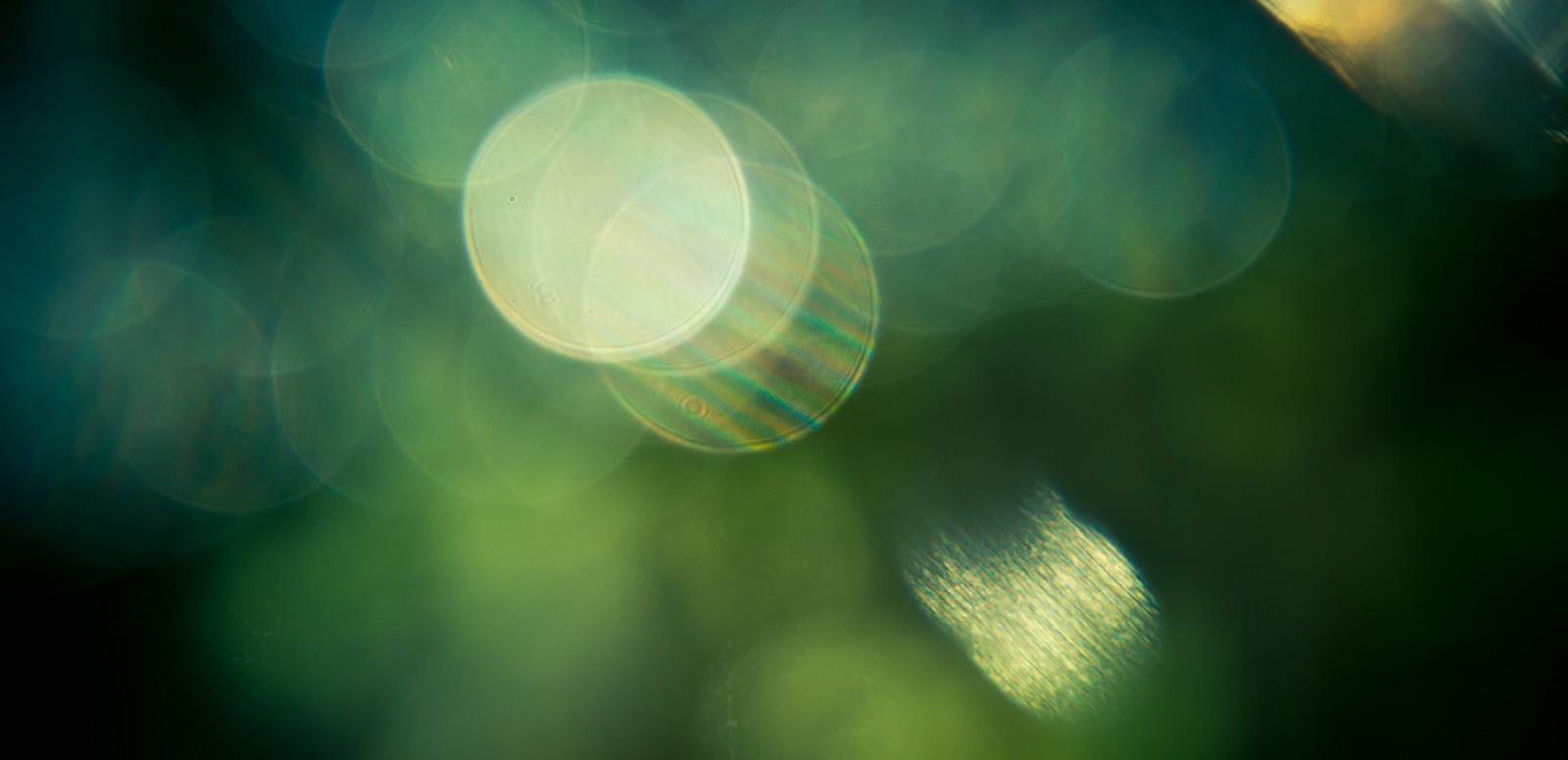
Three siblings starred in a film. Forty years later, they watched themselves on screen for the first time.
In 1959, Jonquil Graham (née Strathern), her brother Jasper and sister Joanna all starred in a film produced for the Department of Immigration. Forty years later, they watched it for the very first time.
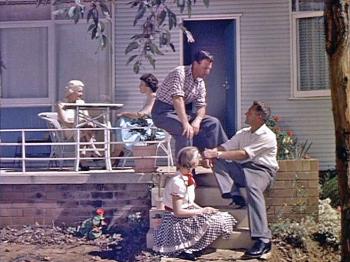
Titled The Way We Live (1959), the film was designed as an introduction to 'the Australian way of life'. It was often played at information evenings by immigration officers hoping to entice European migrants to move Down Under.
Jonquil, Jasper and Joanna starred as the children of the migrant family, and Jonquil also played the older version of her sister’s character in a flash forward to five years after the family’s arrival in Australia. Their screen parents were played by Deryck Barnes (Homicide, A Country Practice, Division 4) and popular theatre actor Margaret Roberts.
'My siblings and I were chosen because we resembled migrant children from European countries', Jonquil recalls. 'We’d done some modelling and TV ads before.'
Each child was paid £25 for their work in the film. Although they continued to socialise with their screen parents (Jonquil has fond memories of her mother hosting elegant cocktail parties), the Strathern family did not have the chance to see the final product until four decades later.
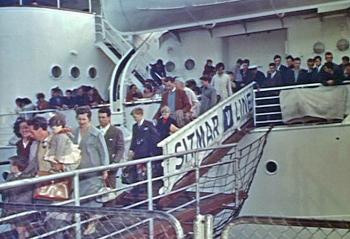
On an otherwise ordinary night in 1999, Jonquil – now living in New Zealand – was watching TV at home when she came across a documentary called Ten Pound Poms (1997). The program featured clips which seemed strangely familiar.
Then her sister rang to say she’d just seen herself on TV – she had recognised the scenes from the documentary as being from The Way We Live. Jonquil was determined to track the film down.
Her mission even ended up attracting media interest.
'I wrote a letter to our local paper, not expecting a journalist to come and interview me', says Jonquil. 'And certainly not expecting for it to then go into The Press [a major NZ newspaper]'.
The story in The Press attracted the attention of the BBC, with a radio program ringing Jonquil up at midnight for an interview.
'They couldn’t believe we "child stars" never got to see a movie we featured in, and they quizzed me at length', says Jonquil.
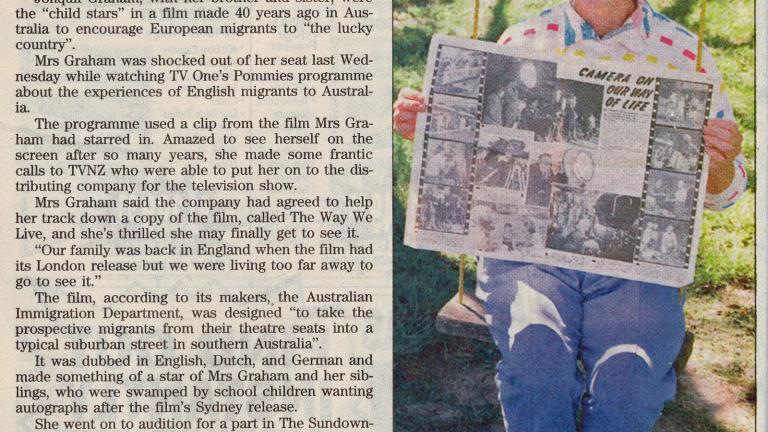
Jonquil Graham with a copy of the newspaper article about her role in The Way We Live. Courtesy Jonquil Graham. (Click images to expand)
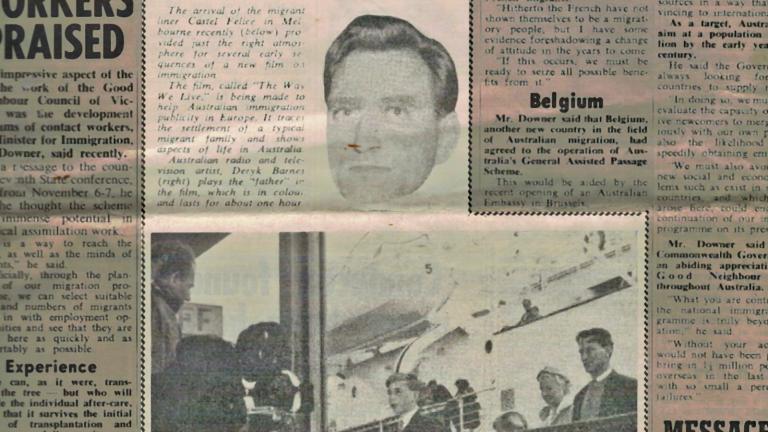
Newspaper article about the 1959 film The Way We Live. Courtesy Jonquil Graham.
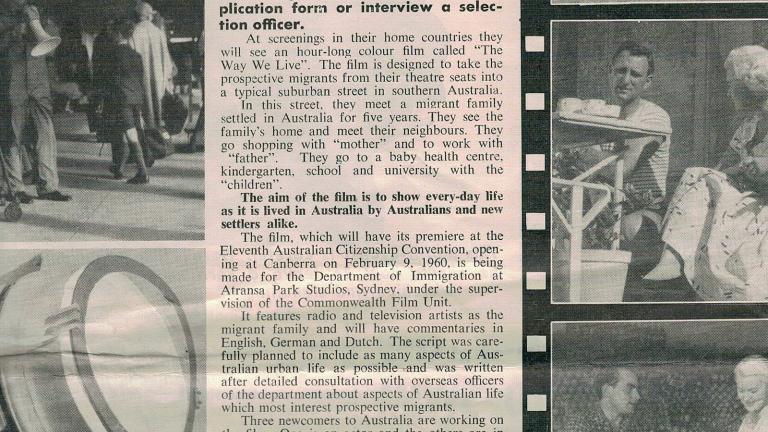
Newspaper article about the 1959 film The Way We Live. Courtesy Jonquil Graham.

Book cover for Once I Was a Teenager: Growing Up in the 50s and 60s in Australia and Beyond by Jonquil Graham. Courtesy Jonquil Graham.
After making further enquiries, with the assistance of the BBC, Jonquil was advised to approach the NFSA and was sent a complimentary recording (at the time on VHS) by the NFSA. She was thrilled to be able to share it with her brother and sister.
'We were all delighted to see the movie', she says.
Jonquil says even now she still remembers making the movie like it was yesterday. So strong are her memories of that time in her life that she even wrote a book, called Once I Was a Teenager: Growing Up in the 50s and 60s in Australia and Beyond. She loves being able to share her stories with her grandkids too.
The NFSA learned of Jonquil’s story when she commented on a Facebook post which shared stills from the film. These days, The Way We Live can be found on YouTube as part of the NFSA’s Film Australia Collection and is also available on DVD.
The Way We Live (1959), from the Film Australia Collection. NFSA Title: 13319
'It’s fun now seeing all these Facebook groups popping up – sometimes they post excerpts from the movie for comment', she says.
As Jonquil wrote when she first came across the NFSA’s Facebook post: 'The movie is a gem … it was about the Aussie dream: you work hard and you will be rewarded'.
NFSA Stories: Outback Geologist
NFSA Stories: My Bollywood Aunt
We will publish more NFSA Stories here on the first Monday of every second month.
The National Film and Sound Archive of Australia acknowledges Australia’s Aboriginal and Torres Strait Islander peoples as the Traditional Custodians of the land on which we work and live and gives respect to their Elders both past and present.